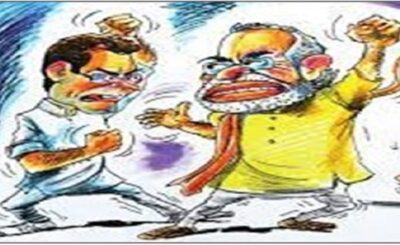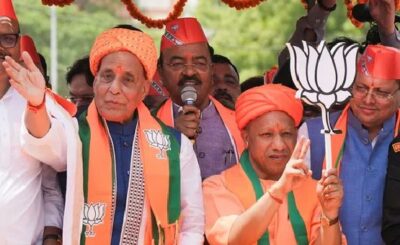ITES
In democratic nations, the pulse of the people is measured through polling—a vital tool for understanding public opinion and shaping policies. However, traditional polling methods often face challenges like sampling bias, low response rates, and the inability to capture real-time sentiments. Enter Artificial Intelligence (AI), poised to revolutionize the way we conduct polls and gather insights. This article presented by Chat GPT explores the transformative potential of AI in the realm of polling, offering a glimpse into a future where democratic processes are more accurate, inclusive, and responsive.
Enhanced Sampling Techniques
One of the primary challenges in polling is obtaining a representative sample of the population. AI algorithms can analyze vast amounts of data from diverse sources, including social media, consumer behavior, and demographic information, to construct more accurate sampling frames. By identifying patterns and correlations, AI can ensure that polling samples reflect the diversity of the population more effectively, reducing the risk of bias and increasing the reliability of results.
Real-Time Analysis
In today’s fast-paced world, public opinion can shift rapidly in response to events, news, and social media trends. Traditional polling methods, often conducted over days or weeks, struggle to capture these dynamic changes in real-time. AI-powered polling platforms, equipped with natural language processing (NLP) and sentiment analysis capabilities, can monitor social media feeds, news articles, and online forums to instantly gauge public sentiment on relevant issues. This real-time analysis enables policymakers and political campaigns to adapt their strategies swiftly, responding to emerging trends and concerns.
Personalized Engagement
AI-driven polling platforms can personalize engagement with respondents, optimizing survey questions and formats based on individual preferences and characteristics. By leveraging machine learning algorithms, these platforms can tailor survey invitations, content, and timing to maximize response rates and minimize respondent fatigue. Additionally, AI chatbots can engage with respondents in natural language conversations, guiding them through surveys and providing instant feedback, enhancing the overall polling experience.
Predictive Analytics
Beyond measuring current opinion, AI can harness historical data and predictive analytics to forecast future trends and outcomes. By analyzing past election results, demographic shifts, and socio-economic indicators, AI algorithms can generate predictive models that anticipate electoral outcomes with greater accuracy. These insights empower political parties, candidates, and policymakers to craft more informed strategies and allocate resources effectively, ultimately enhancing the democratic process.
Ethical Considerations and Challenges
While AI holds immense promise for improving polling in democratic nations, it also raises ethical concerns and technical challenges. Issues such as data privacy, algorithmic bias, and the digital divide must be addressed to ensure that AI-powered polling remains transparent, inclusive, and fair. Moreover, the proliferation of misinformation and manipulation in online spaces poses a significant challenge to the integrity of AI-driven polling efforts, necessitating robust measures for verifying data authenticity and combating disinformation.
As democratic societies grapple with the complexities of governance and representation, AI emerges as a powerful ally in the quest for more responsive and inclusive polling practices. By leveraging advanced algorithms and big data analytics, AI enables us to better understand public opinion, anticipate electoral outcomes, and foster informed decision-making. However, realizing the full potential of AI in polling requires a concerted effort to address ethical concerns, ensure data integrity, and promote transparency. As we navigate this transformative journey, AI offers a beacon of hope for strengthening democratic processes and amplifying the voices of citizens in shaping the future of their nations.








